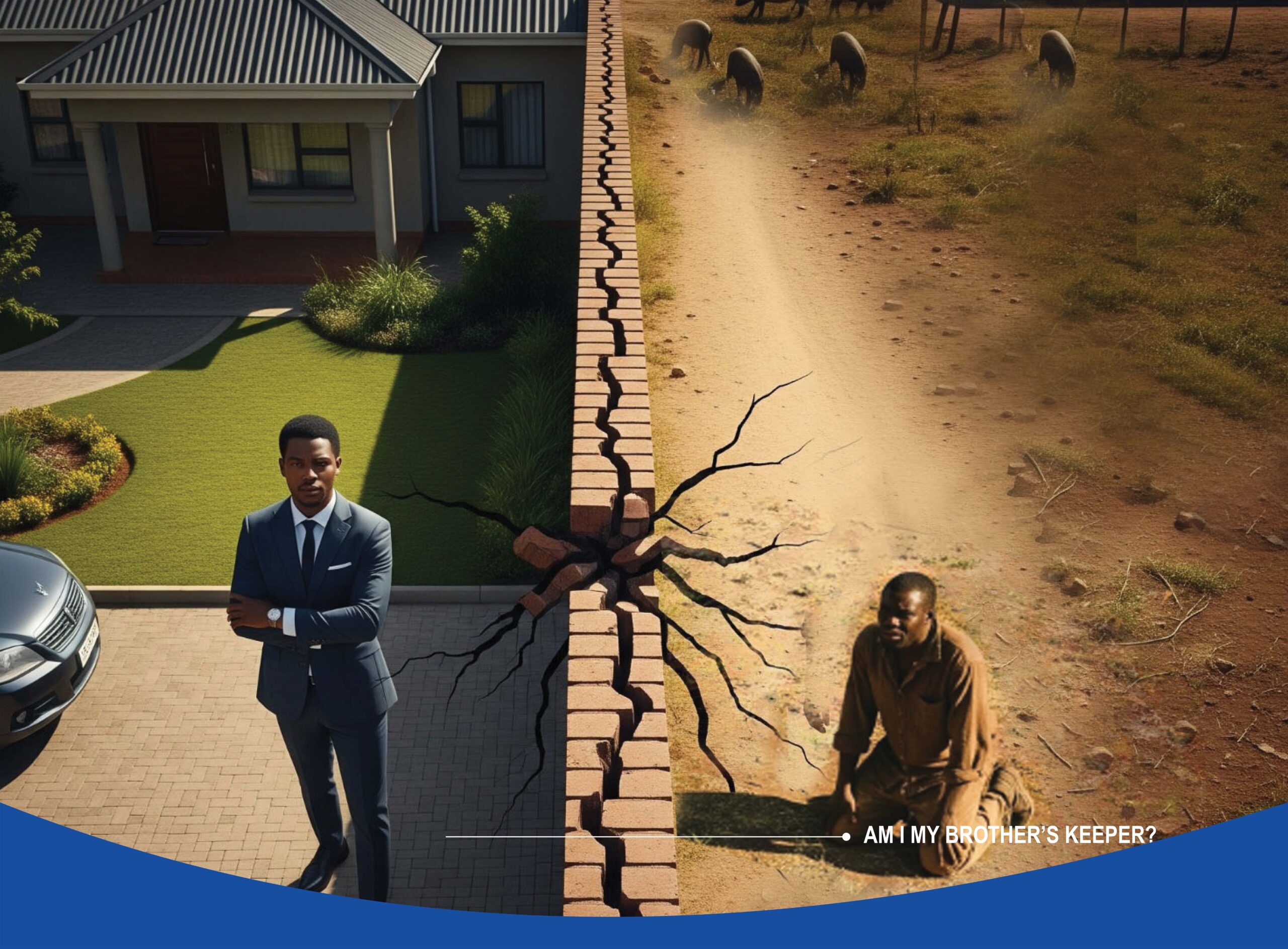Am I My Brother’s Keeper? A Theological Insight Through Scripture and Life – Focus on Alcoholism
The question Cain asks in Genesis 4:9 – “Am I my brother’s keeper?”- echoes through the rest of Scripture, not only as a rhetorical dodge, but as a lens through which we examine our responsibility to others. This same theme of responsibility, care, and resentment plays out in Jesus’ parable of the Prodigal Son, particularly in the attitude of the elder brother.
In Luke 15, the older brother’s response to his sibling’s return reveals a heart similar to Cain’s – though not murderous, it is resentful, self-centered, and dismissive of the grace extended by the father. The older brother refuses to rejoice at his brother’s redemption, essentially implying, “Why should I care? He squandered everything – he’s not my responsibility.” His complaint— “Look! All these years I’ve been slaving for you…” displays a lack of compassion and relational responsibility, mirroring Cain’s moral disengagement.
Both Cain and the elder brother show a deep misunderstanding of grace and fellowship. They place self-righteousness and personal hurt above compassion and restoration. In doing so, they reflect the ongoing temptation within religious communities to judge rather than to restore, to distance rather than to draw near.
The Christian Today and the Call to Be Our Brother’s Keeper
When considering issues like alcoholism, the question “Am I my brother’s keeper?” becomes highly practical and pressing. In churches and christian communities, people often struggle silently with addiction, including alcoholism. The temptation is to take the Cain or elder brother approach—to look away, to judge, or to assume it is “not our problem.”
However, the biblical narrative suggests the opposite. Christians are repeatedly called to bear one another’s burdens (Galatians 6:2), to restore gently those caught in sin, and to model the compassion of Christ, who said, “It is not the healthy who need a doctor, but the sick” (Luke 5:31). The New Testament vision of the church is one of interdependence, mutual care, and healing. Today, many Christians adopt the same tone toward those trying to recover from alcoholism:
• “You made your bed; now lie in it.”
• “Why should you get help when others have struggled silently?”
• “You’ve embarrassed us, now you want a welcome?”
This is the heart of the elder brother – self-righteous, bitter, unable to rejoice in redemption.
But the father (who represents God) says, “We had to celebrate and be glad. This brother of yours was dead and is alive again; he was lost and is found.” (Luke 15:32) Theologically, the contrast between Cain, the elder brother, and the compassionate father in Luke 15 reveals three essential truths:
1. We are our brother’s keeper. Whether in the family, the church, or society, the biblical witness is clear: we are morally and spiritually responsible for one another, especially the vulnerable.
2. Resentment blocks grace. Like Cain and the elder brother, when we allow jealousy or moral superiority to rule us, we cut ourselves off from the joy of restoration and the work of God’s grace.
3. Restoration is communal. The Prodigal Son doesn’t just return to the father, but to a family. If the community refuses to embrace him, then the cycle of grace is broken.
Today, this message speaks directly to how Christians respond to people struggling with addiction, such as
alcoholism. Instead of judgment or avoidance, we are called to:
• Restore gently (Galatians 6:1–2)
• Bear each other’s burdens
• Walk with grace and truth
We Are Our Brother’s Keeper
We cannot turn away or judge in anger.
Cain’s question was a refusal to care, and the elder brother’s bitterness kept him from rejoicing in restoration. But as followers of Christ, we are called to welcome, not condemn. To love, not resent.
We are called to walk with them in love and truth.
The Prodigal Son’s father did not reject his wayward child, he ran to him with open arms. Similarly, Christians are called to walk alongside those battling alcoholism, offering support, prayer, and hope.
We must recognize our role in healing.
Being our brother’s keeper means seeing alcoholism not as a shameful secret but as a challenge that calls for community, grace, and practical help. It means creating spaces where healing can begin.

